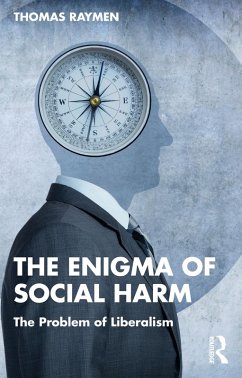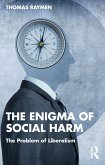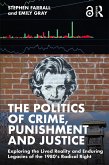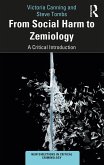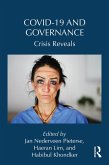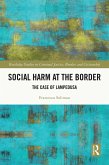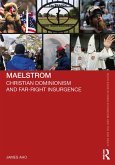Appraising the current state of the concept of social harm in academic scholarship and every-day life, Thomas Raymen finds a concept in an underdeveloped state of disorder, trapped in interminable deadlocks and shrill disagreements about what should and should not be considered harmful. To explain the genesis of this conceptual crisis and identify what we need to do to resolve it, The Enigma of Social Harm travels from Graeco-Roman antiquity to the present day, exploring trends and developments in moral and political philosophy, religion, law, political economy, and culture. Along the way, we see how such trends and developments have not only made it more difficult to establish a shared basis for evaluating harm, but that the tools which might enable us to do so are now outright prohibited by the political-economic, cultural, and ethical ideology of liberalism that dominates contemporary society.
Written in a clear and accessible style, it is essential reading for all those interested in matters of social harm, justice, politics, and ethics.
Dieser Download kann aus rechtlichen Gründen nur mit Rechnungsadresse in A, B, BG, CY, CZ, D, DK, EW, E, FIN, F, GR, HR, H, IRL, I, LT, L, LR, M, NL, PL, P, R, S, SLO, SK ausgeliefert werden.
Anthony Lloyd, Associate Professor of Criminology and Sociology, Teesside University
'If by chance this book does not receive classic status and act as a new foundation for the study of social harm, it will be yet another indication that the social sciences are in terminal decline, and nothing can be done to slow the descent.'
Simon Winlow, Professor of Criminology, Northumbria University
'New criminology books are commonplace, but theoretically ground-breaking ones that make a significant leap forward in a core area of our discipline are truly rare. This book falls into the latter category. It is a book that will either make you think again, or it will give clarity and coherence to those inchoate thoughts that have been in the back of your head but that you have never managed to articulate. Either way, it is a book that everyone interested in social harm must read.'
James Treadwell, Professor of Criminology, Staffordshire University

